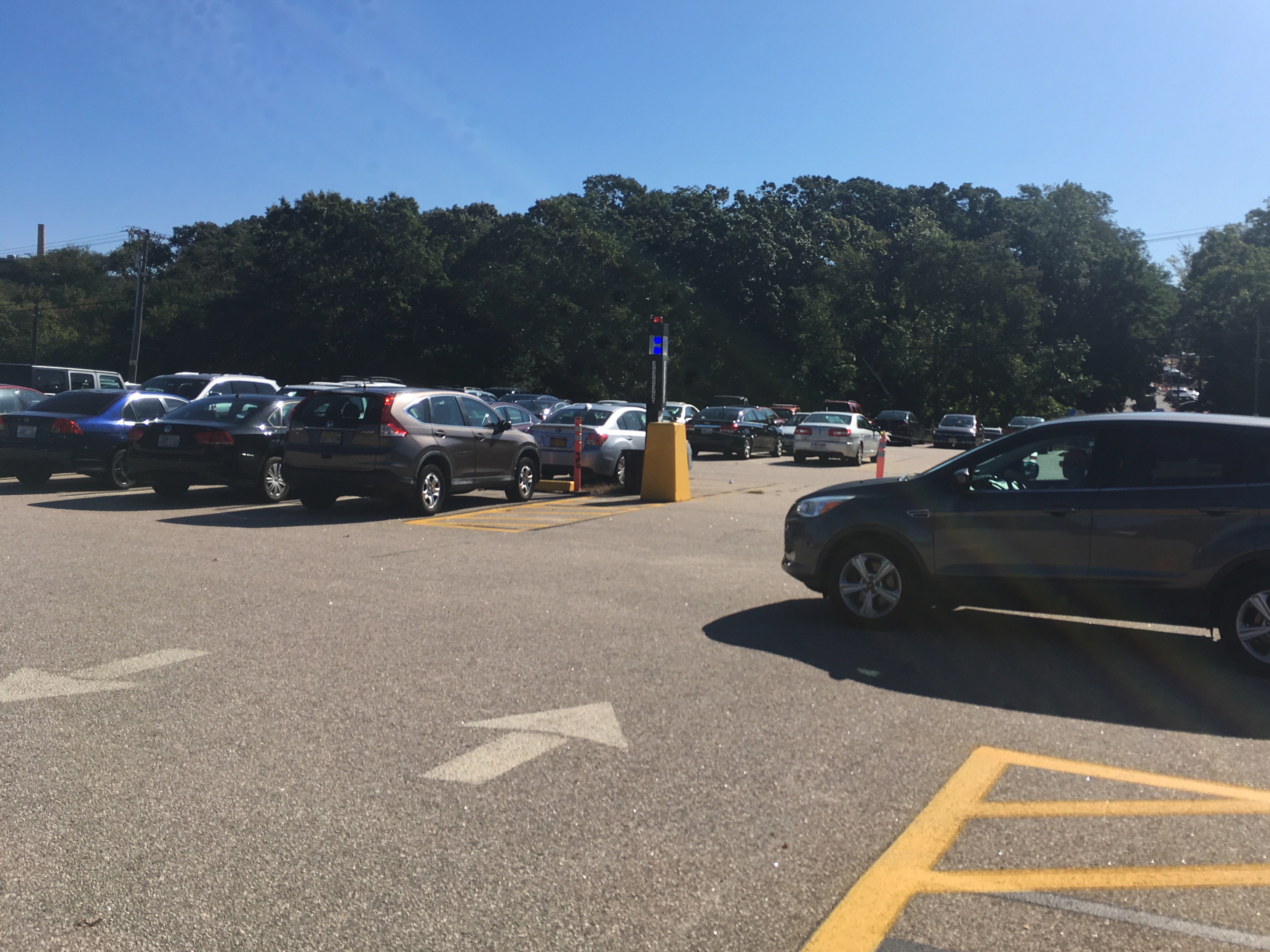Following cuts, finding a parking spot now takes longer in the Keaney lot. Photo by Greg Clark.
Students were angered that the University cut the Keaney commuter lot nearly in half
The commuter lot in Keaney was cut nearly in half over the summer, frustrating many students and causing difficulty parking in lots designated for commuters.
This year, Keaney has commuter, resident and newly added Greek parking, which was done because Fraternity Circle is under construction. A significant portion of the Keaney commuter lot was changed over the summer to be designated as a resident lot.
Each section is specifically designated for the different types of student parking with signage and boundaries. The lot’s now smaller availability for commuters has impacted students looking for spots for classes and workouts at Mackal Fieldhouse.
According to the University of Rhode Island’s Department of Transportation and Parking, commuters can park in lots on Keaney Road, Plains Road, behind the Fine Arts Center and in various street parking throughout campus, all which require purchasing a $125 per semester or a $200 per year parking pass.
Junior Matt Leake, a member of the URI Powerlifting Team, is concerned about what will happen when the majority of his team has to commute to campus for practices at one time.
“If we’re all at the gym at the same time, it doesn’t happen all the time, but just in general, if there’s no parking, there’s no parking,” Leake said. “I don’t know what I’m supposed to do. I assume they’re going to say drive to Plains [Lot] and walk to the gym from there. That’s just a haul.”
Leake questioned whether or not students should be ticketed if there are no commuter spots available and they park in non-commuter lots.
“The boss lot is supposed to be for faculty and visitors,” Leake said. “Maybe have some kind of way that if I’m only there for the gym, let me park there. Taking 20 minutes to find a parking spot is so annoying.”
Although there are more spots available for commuters in the Plains Lot, there is no direct bus from Plains to Keaney. For commuter students trying to work out in Mackal Fieldhouse, this creates a large inconvenience for them.
Junior Joe Staley has had such a difficult time finding parking for class during the day that he assumes there are no spots in Keaney and parks in the Plains Lot daily.
“I had almost no problems last year,” Staley said. “Even if I got here before 10 o’clock I had almost no problems. I’m pretty sure most of the people in Keaney park there overnight, so there’s very few spots, even if you get there super early in the morning,”
Vice President of Administration and Finance Abigail Rider oversees the division of Parking and Transportation, and played a role in examining changing Keaney’s Lot size.
“What’s really excellent now is that we have software that keeps track of how many permits of each kind we’ve issued, and how many spaces we have,” Rider said. “For people that haven’t worked in parking, they have this notion there should be one space for every permit, which nobody does. You would make the cost of parking way too high. From years of experience we have figured out what the ratio needs to be.”
According to Rider, lack of parking spots for commuters comes from new students parking in the incorrect spots, lack of carpooling amongst students, not enough people utilizing the free parking in Wickford Junction, too many people driving cars rather than taking the Rhode Island Public Transit Authority (RIPTA) and more students coming to campus everyday on average at the start of the semester.
“The first three weeks or so of school everybody comes to campus everyday,” Rider said. “We always have this issue at the beginning of school. We’re looking at ways we might try to alleviate that. It wouldn’t be super convenient, but even some temporary parking some place.”
While Rider believes that the parking problem will alleviate itself over the next few weeks, the department is monitoring the issue closely and will make adjustments as necessary in Keaney and other lots. Parking and Transportation will move the barriers if their ratio of spots to permits sold is inaccurate.





